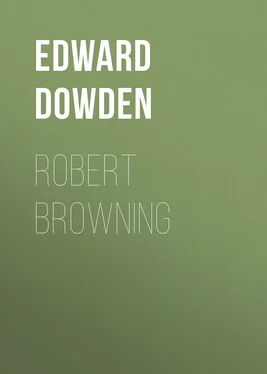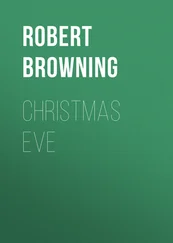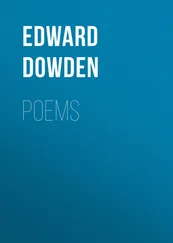Edward Dowden - Robert Browning
Здесь есть возможность читать онлайн «Edward Dowden - Robert Browning» — ознакомительный отрывок электронной книги совершенно бесплатно, а после прочтения отрывка купить полную версию. В некоторых случаях можно слушать аудио, скачать через торрент в формате fb2 и присутствует краткое содержание. Жанр: Биографии и Мемуары, Поэзия, foreign_antique, foreign_prose, foreign_poetry, на английском языке. Описание произведения, (предисловие) а так же отзывы посетителей доступны на портале библиотеки ЛибКат.
- Название:Robert Browning
- Автор:
- Жанр:
- Год:неизвестен
- ISBN:нет данных
- Рейтинг книги:5 / 5. Голосов: 1
-
Избранное:Добавить в избранное
- Отзывы:
-
Ваша оценка:
- 100
- 1
- 2
- 3
- 4
- 5
Robert Browning: краткое содержание, описание и аннотация
Предлагаем к чтению аннотацию, описание, краткое содержание или предисловие (зависит от того, что написал сам автор книги «Robert Browning»). Если вы не нашли необходимую информацию о книге — напишите в комментариях, мы постараемся отыскать её.
Robert Browning — читать онлайн ознакомительный отрывок
Ниже представлен текст книги, разбитый по страницам. Система сохранения места последней прочитанной страницы, позволяет с удобством читать онлайн бесплатно книгу «Robert Browning», без необходимости каждый раз заново искать на чём Вы остановились. Поставьте закладку, и сможете в любой момент перейти на страницу, на которой закончили чтение.
Интервал:
Закладка:
In its combination of thought with passion, and not less in its expression of a certain premature worldly wisdom, Paracelsus is an extraordinary output of mind made by a writer who, when his work was accomplished, had not completed his twenty-third year. The poem is the history of a great spirit, who has sought lofty and unattainable ends, who has fallen upon the way and is bruised and broken, but who rises at the close above his ruined self, and wrings out of defeat a pledge of ultimate victory. In a preface to the first edition, a preface afterwards omitted, Browning claims originality, or at least novelty, for his artistic method; "instead of having recourse to an external machinery of incidents to create and evolve the crisis I desire to produce, I have ventured to display somewhat minutely the mood itself in its rise and progress, and have suffered the agency by which it is influenced and determined, to be generally discernible in its effects alone, and subordinate throughout, if not altogether excluded." The poem, though dramatic, is not a drama, and canons which are applicable to a piece intended for stage-representation would here—Browning pleads—be rather a hindrance than a help. Perhaps Browning regarded the action which can be exhibited on the stage as something external to the soul, and imagined that the naked spirit can be viewed more intimately than the spirit clothed in deed and in circumstance. If this was so, his conceptions were somewhat crude; with the true dramatic poet action is the hieroglyph of the soul, and many a secret may be revealed in this language, amassing as it does large meanings into one luminous symbol, which cannot be set forth in an elaborate intellectual analysis. We think to probe the depths, and perhaps never get far below the surface. But the flash and outbreak of a fiery spirit, amid a tangle of circumstance, springs to the surface from the very centre, and reveals its inmost energies.
Paracelsus, as presented in the poem, is a man of pre-eminent genius, passionate intellect, and inordinate intellectual ambition. If it is meant that he should be the type of the modern man of science, Browning has missed his mark, for Paracelsus is in fact almost as much the poet as the man of science; but it is true that the cautious habits of the inductive student of nature were rare among the enthusiastic speculators of Renaissance days, and the Italian successor of Paracelsus—Giordano Bruno—was in reality, in large measure, what Browning has here conceived and exhibited. Paracelsus is a great revolutionary spirit in an epoch of intellectual revolution; it is as much his task to destroy as to build up; he has broken with the past, and gazes with wild-eyed hopes into the future, expecting the era of intellectual liberty to dawn suddenly with the year One, and seeing in himself the protagonist of revolution. Such men as Paracelsus, whether their sphere be in the political, the religious, or the intellectual world, are men of faith; a task has been laid on each of them; a summons, a divine mandate, has been heard. But is the summons authentic? is the mandate indeed divine? In the quiet garden at Würzburg, while the autumn sun sinks behind St Saviour's spire, Festus—the faithful Horatio to this Hamlet of science—puts his questions and raises his doubts first as to the end and aim of Paracelsus, his aspiration towards absolute knowledge, and secondly, as to the means proposed for its attainment—means which reject the service of all predecessors in the paths of knowledge; which depart so widely from the methods of his contemporaries; which seek for truth through strange and casual revelations; which leave so much to chance. Very nobly has Browning represented the overmastering force of that faith which genius has in itself, and which indeed is needed to sustain it in the struggle with an incredulous or indifferent world. The end itself is justified by the mandate of God; and as for the means, truth is not to be found only or chiefly by gathering up stray fragments from without; truth lies buried within the soul, as jewels in the mine, and the chances and changes and shocks of life are required to open a passage for the shining forth of this inner light. Festus is overpowered less by reason than by the passion of faith in his younger and greater fellow-student; and the gentle Michal is won from her prophetic fears half by her affectionate loyalty to the man, half by the glow and inspiration of one who seems to be a surer prophet than her mistrusting self. And in truth the summons to Paracelsus is authentic; he is to be a torch-bearer in the race. His errors are his own, errors of the egoism of genius in an age of intellectual revolution; he casts away the past, and that is not wise, that is not legitimate; he anticipates for himself the full attainment of knowledge, which belongs not to him but to humanity during revolving centuries; and although he sets before himself the service of man as the outcome of all his labours—and this is well—at the same time he detaches himself from his fellow-men, regards them from a regal height, would decline even their tribute of gratitude, and would be the lofty benefactor rather than the loving helpmate of his brethren. Is it meant then that Paracelsus ought to have contented himself with being like his teacher Trithemius and the common masters of the schools? No, for these rested with an easy self-satisfaction in their poor attainments, and he is called upon to press forward, and advance from strength to strength, through attainment or through failure to renewed and unending endeavour. His dissatisfaction, his failure is a better thing than their success and content in that success. But why should he hope in his own person to forestall the slow advance of humanity, and why should the service of the brain be alienated from the service of the heart?
There are many ways in which Browning could have brought Paracelsus to a discovery of his error. He might have learnt from his own experience the aridity of a life which is barren of love. Some moment of supreme pity might have come to him, in which he, the possessor of knowledge, might have longed to offer consolation to some suffering fellow, and have found the helplessness of knowledge to console. Browning's imagination as a romantic poet craved a romantic incident and a romantic mise-en-scène . In the house of the Greek conjuror at Constantinople, Paracelsus, now worn by his nine years' wanderings, with all their stress and strain, his hair already streaked with grey, his spirit somewhat embittered by the small success attending a vast effort, his moral nature already somewhat deteriorated and touched with the cynicism of experience and partial failure, shall encounter the strange figure of Aprile, the living wraith of a poet who has also failed, who "would love infinitely and be loved," and who in gazing upon the end has neglected all the means of attainment; and from him, or rather by a reflex ray from this Aprile, his own error shall be flashed on the consciousness of the foiled seeker for knowledge. The invention of Browning is certainly not lacking in the quality of strangeness in beauty; yet some readers will perhaps share the feeling that it strains, without convincing, the imagination. As we read the first speeches addressed by the moon-struck poet to the wandering student of science, and read the moon-struck replies, notwithstanding the singular beauty of certain dramatic and lyrical passages, we are inclined to ask—Is this, indeed, a conjuror's house at Constantinople, or one of Browning's "mad-house cells?" and from what delusions are the harmless, and the apparently dangerous, lunatic suffering? The lover here is typified in the artist; but the artist may be as haughtily isolated from true human love as the man of science, and the fellowship with his kind which Paracelsus needs can be poorly learnt from such a distracted creature as Aprile. It is indeed Aprile's example and the fate which has overtaken him rather than his wild words which startle Paracelsus into a recognition of his own error. But the knowledge that he has left love out of his scheme of life is no guarantee that he will ever acquire the fervour and the infinite patience of love. The whole scene, with its extravagant poetic beauties and high-pitched rhetoric, leaves a painful impression of unreality, not in the shallower but in the deepest sense of that word.
Читать дальшеИнтервал:
Закладка:
Похожие книги на «Robert Browning»
Представляем Вашему вниманию похожие книги на «Robert Browning» списком для выбора. Мы отобрали схожую по названию и смыслу литературу в надежде предоставить читателям больше вариантов отыскать новые, интересные, ещё непрочитанные произведения.
Обсуждение, отзывы о книге «Robert Browning» и просто собственные мнения читателей. Оставьте ваши комментарии, напишите, что Вы думаете о произведении, его смысле или главных героях. Укажите что конкретно понравилось, а что нет, и почему Вы так считаете.












